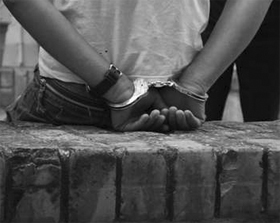Custody is a serious measure that should only be limited to the necessities of an investigation when there are plausible reasons to suspect that a person has committed or attempted to commit an offense. However, in practice, this measure is often used to keep a person available even if their presence is no longer truly necessary for the continuation of an ongoing investigation.

What is the duration of custody?
The duration of custody is 24 hours and can be extended by 24 or 48 hours with the authorization of the Public Prosecutor. For drug-related cases, organized crime, and terrorism, the duration can be a maximum of 96 hours.
What are the rights of the person in custody?
The person in custody must be immediately informed in a language they understand:
- about the nature of the offense being investigated,
- the provisions concerning the duration of custody,
- and their rights, which include:
The right to have the person with whom they usually live, their family, or their employer informed by phone within 3 hours of being placed in custody,
The right to be examined by a doctor,
The right to consult with a lawyer of their choice from the first hour of custody, with the consultation being confidential and not exceeding 30 minutes. The lawyer can only intervene after a delay of 48 hours for persons in custody for organized crime cases or 72 hours for drug trafficking or terrorism cases.
While in 2001, the number of custody measures was 336,718, more than 790,000 custody measures were decided in 2009, including over 170,000 for traffic offenses alone.
Moreover, on September 7th, the Minister of Justice indicated that two texts, one related to custody and the other concerning the first part of the reform of criminal procedure, would be submitted to the Council of State.
The proposed measures
The preliminary draft law concerning custody aims to meet several objectives:
- the right for a lawyer to be present throughout the custody for all common law custodies,
- the reduction in the number of custodies: only people suspected of a crime or an offense punishable by imprisonment can be placed in custody,
- the possibility for a suspected person to be questioned during a free hearing outside the custodial regime. The extension of custody will no longer be possible for offenses punishable by less than one year of imprisonment;
-
finally, the prohibition of full-body searches and notification of the right to silence.
While this draft law may seem to be a step forward, several exceptions are planned to prevent the implementation of its main interest, namely the presence of a lawyer throughout custody.
Indeed, the Prosecutor will have the possibility to delay the presence of the lawyer, at the request of the judicial police officer, for a maximum duration of twelve hours “in consideration of particular circumstances related to the necessity of gathering or preserving evidence”.
What will then be the leeway left for investigators to ask the prosecutor to delay the lawyer’s arrival until the twelfth hour of custody? The term “necessities of the investigation” carries an imprecise and broad definition that needs to be defined. Otherwise, everything suggests that the exception will become the rule.
Similarly, the principle of a free hearing does not at all guarantee the respect of rights inherent to custody, such as the presence of a lawyer at the beginning, the ability to inform family, or the right to a medical examination.


